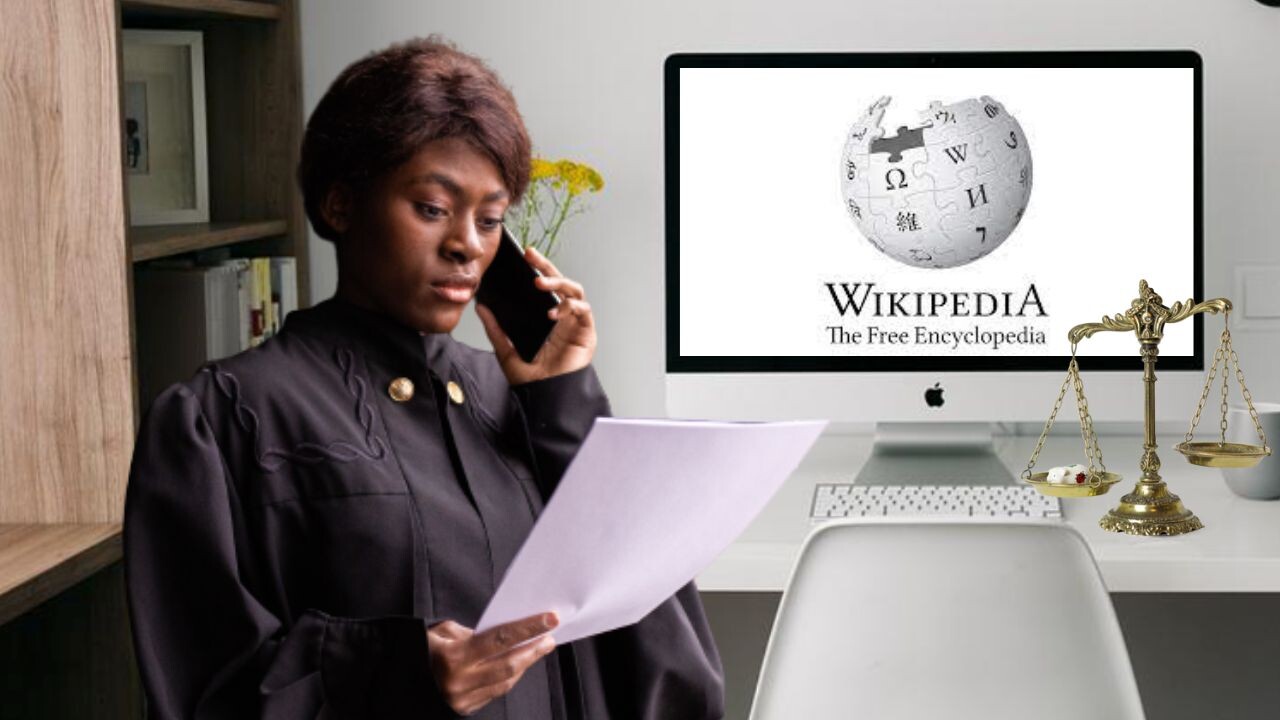Litigants could game Wikipedia to influence legal decisions, according to new research.
A study led by Neil Thompson from MIT’s Computer Science and AI Laboratory (CSAIL) discovered that judges were more likely to cite legal cases that have a Wikipedia article.
The finding has sparked concerns that judicial decisions are being shaped by unreliable information. The openness of Wikipedia could also lead legal judgements to be manipulated.
“A well-resourced litigant could encourage his legal team to anonymously integrate their own analysis of a relevant precedent into a Wikipedia article at an early stage of litigation, in the hope of later attracting the attention of the judge or his clerk,” Thompson told TNW.
The case against Wikipedia
Wikipedia is increasingly cited in legal scholarship and court judgments.
Busy judges use the site to keep up with developments in case law — but the shortcut is hazardous.

While Wikipedia provides an enormous breadth of free information, research on the site’s accuracy and biases has produced mixed results. Ad hoc topic coverage and unknown authorship add further vulnerabilities.
“The worst outcome would be for a judge’s reliance on Wikipedia to lead them to decide a case differently than they would have if they had read either an expert secondary source or the cited precedent itself,” said Thompson.
“Even without any difference in outcome, however, judges’ reliance on Wikipedia to determine the applicable law undermines the litigant’s expectation that the court’s reasoning is the product of expertise alone.”
Legal precedents
The study focused on Wikipedia’s influence on judges in Ireland.
The country shares key similarities with other common law systems, such as US and UK. Notably, lower courts are bound by the decisions made in higher courts, while judges cite previous cases to determine the applicable legal principle.
Unlike in the US, however, decisions made in Irish courts are rarely covered in Wikipedia, which makes it easier to analyze the impact of new entries.
Given the greater coverage of US court cases on Wikipedia, its influence might be even larger.
The researchers created 154 new Wikipedia entries on Irish Supreme Court cases. Most were written by law students under faculty supervision.
Each author had access to relevant legal materials, but their names, expertise, and potential biases were opaque.
Half the articles were randomly selected for upload to Wikipedia, where judges, clerks, and lawyers could access them. The other half were kept offline. This provided a counterfactual basis for what happens to cases without an entry on the site.
The uploaded entries were uploaded were highly visible on search engines.
“Our Wikipedia articles were the first search result on Google, Bing, or DuckDuckGo in almost every case when searched by decision title or just the citation,” the study authors wrote.

The team then tracked how often the articles were cited in judicial decisions. They further measured whether the arguments in court judgments echoed the Wikipedia pages.
The verdict
The study found that a Wikipedia article increases a case’s citations in Ireland by more than 20%. This boost was far bigger for citations by lower courts, which suggests the site is used more by judges or clerks with heavier workloads.
Strikingly, the language used in Wikipedia entries was shown to influence the actual arguments used in judicial decisions.
“Given the greater coverage of US court cases on Wikipedia, the influence of Wikipedia on the use of precedent might be expected to be even larger,” said Thompson.

Legal damages
The Wikimedia Foundation, which operates Wikipedia, expressed some initial concerns about report.
The nonprofit noted that it had limited access to the study information, such as the full list of articles and the number of citations they received.
A spokesperson from the Wikimedia Foundation said:
In this case, we would like to note that the pages added to Wikipedia as part of this research were added by law students and would have likely been further edited and improved by Wikipedia volunteer editors from across the globe who keep a watch on articles to maintain the content’s verifiability.
In fact, reviewing new pages is one of the most important maintenance tasks on our free knowledge website.
The researchers recommend further measures.
One is recruiting legal professionals as supervising editors to certify page quality.
Another is augmenting the free legal content on more authoritative sites. One potential model is the Oyez Project, which provides free synopses of recent decisions made by the US Supreme Court and Court of Appeal.
“In either case, we envision a strong role for professional societies,” said Thompson.
“We hope they’ll see our results and form committees of experts to engage with Wikipedia and other information sources to work to make them more authoritative.”
You can read the study paper here.
Get the TNW newsletter
Get the most important tech news in your inbox each week.





